
Michael Riedel, the theatre columnist for the New York Post and the co-host of the long running PBS show Theater Talk, sat with me for an hour on November 2nd, to discuss his valuable and readable new book Razzle Dazzle. It may sound like a treatise on musical theatre, but not if you include its subtitle: “The Battle For Broadway.” It is instead a most well-researched documentary on the rise, fall, and recovery of Broadway and the theatre world that lives on it, from the early 1970s to the present time.
Before one even gets to word one, there is a double page spread of a photo taken of 42nd Street 45 years ago, in the depths of the blight of 1970, and just inside the back cover there is another photo, this one of the same street as it appears today. These two sum up the story and theme of the book.
In the past two years Riedel interviewed 75-100 people who have lived and worked in the theatre during that earlier time, when Times Square was dangerous, when theatres were being torn down, when attendance at Broadway shows dropped from nine million in 1968 to under five million in 1972. As theatre memoirs and biographies don’t usually have large sales, Riedel is convinced that Simon and Schuster, a venerable New York publisher, agreed to publish his book based on a proposal he made, because he told of his intention to prove that the theatre industry was vital to the economic health of the entire city of New York, and indirectly as the single largest tourist attraction the city offered. It actually had an effect on the nation as a whole.
https://youtu.be/fyl6BNDh8NQ
Riedel says it was his intention to deal with the people who stood by the Broadway theatre during 1970s decade and with their efforts to turn it around. Bernard Jacobs and Eli Schoenfeld, who came to be known as “the Shuberts” (for reasons that are fully revealed in the book), the Nederlander family, Michael Bennett with A Chorus Line, David Merrick with 42nd Street, Cameron Mackintosh with Les Misérables, and Miss Saigon, the big blockbuster hits that led to the arrival of the Disney company, the first to buy and restore a legitimate theatre on “the Deuce” itself, the New Amsterdam Theatre on 42nd Street with their hit The Lion King.
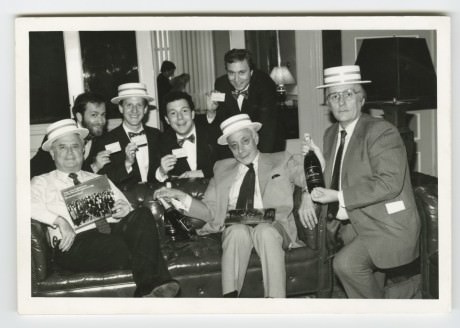
Some have said the ’70s were just something that happened to “the fabulous invalid.” That’s what the theatre was called, for it had had bad times before, but it always recovered in time. Riedel claims that the ’70s decline was more than that. It’s his contention that this was truly the period of the dying invalid, nothing fabulous about it. Theatres were not landmarked then; they were closing, they were being torn down (they were more valuable as parking lots). This was not the usual cause ascribed to the shrinking audiences. This was not, as had been shouted before: “It’s TV that’s killing theatre! It’s the movies that are doing it. It’s radio that’s taken away the audience.” Theatre had been surviving for over twenty five hundred years, ever since Oedipus had that strange onstage relationship with his mother. Riedel says the cause this time was urban blight. Theatres were built mostly in downtown urban areas. Detroit, Chicago, Washington, Philadelphia were dangerous and New York’s Times Square, which was what Broadway called home, was the most dangerous of all, and the paying customers were fleeing in droves.
So though the book deals with the renewed vitality of the Broadway theatre, anyone interested in the history of New York should find it a page turner. For Riedel is first and foremost a journalist, and he has a pungent style that is extremely readable while being informative. He tells us that the book is really about power, how people achieve it, how they maintain it, how they use it, and what it does to them. Some of the power figures come from the law, from business, from real estate — but many are from the creative side as well.
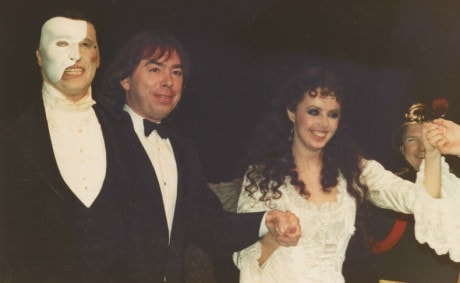
Andrew Lloyd Webber is a major composer, but he wanted it all — to own theatres, to produce shows, to be in complete control of his works. Michael Bennett, the director-choreographer was obsessed with power as well. He needed to own theatres (he never did; but he owned a building devoted to his dancers and others who needed comfortable and affordable rehearsal space). Others like Hal Prince, who gained power not only as a major producer but as an important director as well, used it to help the theatre itself, and is still one of its most supportive leaders. Not all the titans wanted power. Jerome Robbins reached the point where he could call all the shots on his shows, the point where he had more “muscle” than the writers or the star or even the producer of his shows, and when he achieved all that, he left the theatre to work in the more rarified atmosphere of the ballet world, where he returned to his less lucrative roots, for it was Fancy Free, his ballet that led to On The Town, which began his reign as Broadway’s most demanding creator.
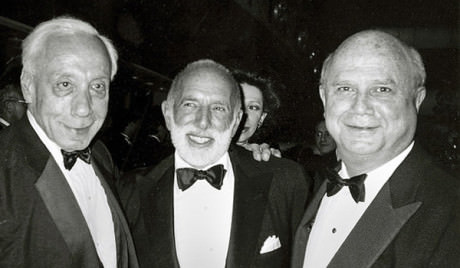
Rodgers and Hammerstein, once Oklahoma! and Carousel established them, became lord and master of all the rest of their output by expanding into music publishing and subsidiary licensing as well as producing on their own. The gifted composer-lyricists Kander and Ebb, Jerry Herman, Stephen Sondheim, Bock and Harnick, Adams and Strouse, and many others had no interest in owning, or managing, or investing. But the book would deal with those who did and it’s the blow by blow infighting, the dramatic power plays and Riedel’s probing report that holds our interest throughout.
I asked Michael how he felt about the coming crop of writers for the musical theatre, for the “golden age” certainly seemed to me to have become tarnished. Melody has left us, lyrics have lost their luster and the rock ‘n rollers and rappers have arrived and seem to appeal to a growing young audience that approves. Not always, but Hair, Rent, Rock of Ages, and Hamilton, all box office hits, may be harbingers of things to come. Nothing wrong with that; certainly musical theatre evolved from operetta to musical comedy to Rodgers and Hammerstein to the more gritty Kander and Ebb. But never has there been such a divergence between the older and the younger audience members over just exactly what is entertainment.
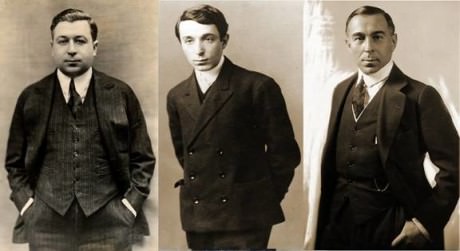
Riedel thinks it’s all healthy; there will be another revolution one of these days and who knows? Perhaps the next new wave will bring us a romantic operetta as in the days of Noel Coward’s Bitter Sweet only it will have more bitter than sweet in it just to give it the edge that young audiences seem to need. Riedel did agree that though some of the new composers (he mentioned Jason Robert Brown, Michael John Lachiusa, and Adam Guettel) are talented musicians, he finds their music “sweet, very pretty, but not surprising and dynamic. And rarely do we get a lyric that’s clever or moving – or quotable.” Cy Coleman once told him: ‘”You can teach everything about composing except how to write a melody. You either have that gift or you don’t.”
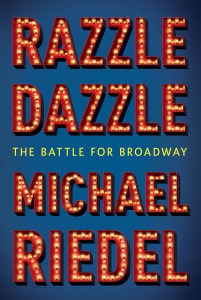
There is more to Michael Riedel than this book. He’s been writing the only news column on the Broadway scene for the New York Post, and he’s been one of the dynamic hosts of Theatre Talk, along with Susan Haskins who serves admirably in bringing other perspectives to the show.
And last but certainly not least, he recently had a marvelous time playing himself on the TV series Smash, absolutely holding his own acting opposite Angelica Huston, Christian Borle and other experienced actors. I’ve known Michael since the late 1980s and he remains a unique supporter of the theatre, but unlike so many of those columnists who came before him, he doesn’t deal with gossip or press releases so much as he does with facts, no matter from where they are unearthed. He’s fair and has been known to apologize or retract on the rare occasions when his source was discredited. He asks tough questions of his subjects on the air and in his columns, but he has always provoked lively conversation about this performing art, and I highly recommend Razzle Dazzle to anyone interested in how the Big Black Giant (as Oscar Hammerstein once described the Broadway audience in a lyric) reclaimed Broadway and returned in record breaking numbers to revel in it.
https://youtu.be/upZcrm_VMhA
Purchase Razzle Dazzle: The Battle for Broadway here.




